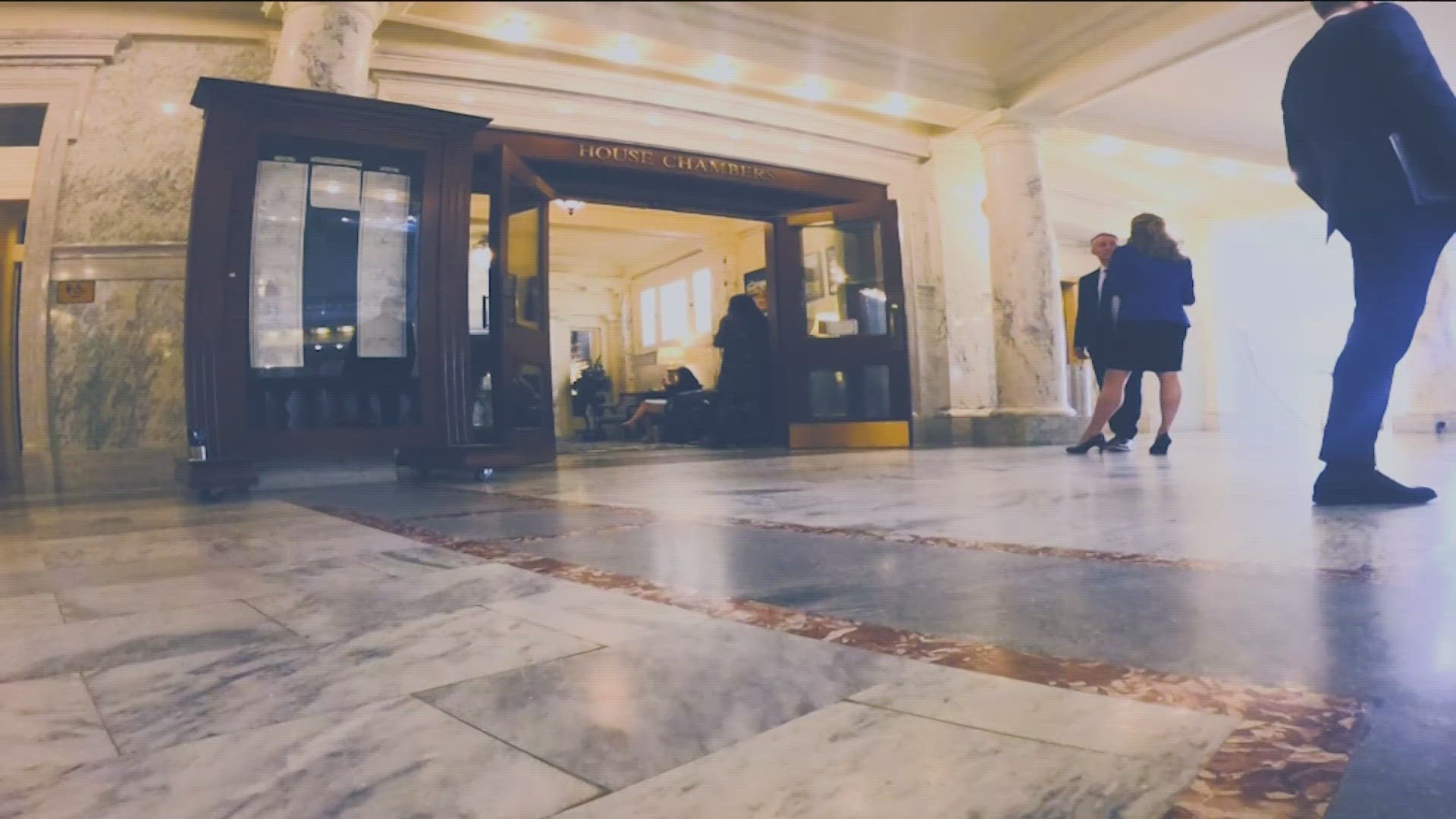BOISE, Idaho — Many laws pitched as unique and "good for Idaho" aren't actually original or driven by constituent demand.
These "model bills" mostly come from out of state and often directly benefit a handful of special interests. These groups push the same policies in state capitols across the country and in recent years, many of those special interests have leaned very far to the right.
Every legislative session, several pieces of legislation are copied and pasted from think tanks, lobbyists and corporate-backed national special interests. These organizations are dubbed "bill mills" -- they often pitch lawmakers bills at conferences before the legislative session even starts.

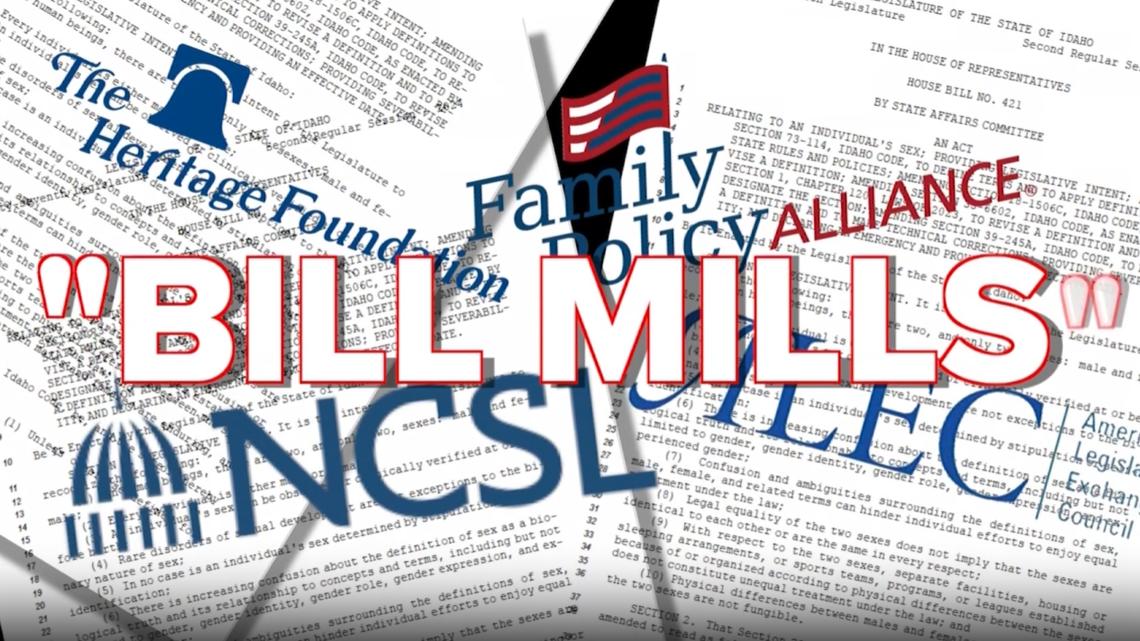
One of the most prominent corporate-backed bill mills is ALEC, the American Legislative Exchange Council. Dozens more exist, including the Foundation for Government Accountability (FGA), Family Policy Alliance, Heritage Foundation, Manhattan Institute, Goldwater Institute, Alliance Defending Freedom (ADF), State Innovation Exchange (SiX), and the American Civil Liberties Union (ACLU).
Former Idaho lawmakers Steven Scanlin and Russell Westerberg said model bills existed when they served in the legislature more than four decades ago, at a time when politics didn't seem as partisan.
In those days, Scanlin and Westerberg said the National Conference of State Legislatures (NCSL) was the predominant player drafting model legislation -- Scanlin recalls it always being nonpartisan.
Westerberg, the long-time owner of Westerberg Aston & Associates - a government affairs, consulting and lobbying firm in Boise - noted that for lobbyists and out-of-state special interests Idaho lawmakers are easier to access and it's a cheaper place to do business than other states.
Being a part-time citizen legislature, some lawmakers believe it's more efficient and effective to be handed model legislation than draft up their own bills from scratch. Scanlin added it "absolutely" makes things easier to not have to reinvent the wheel.

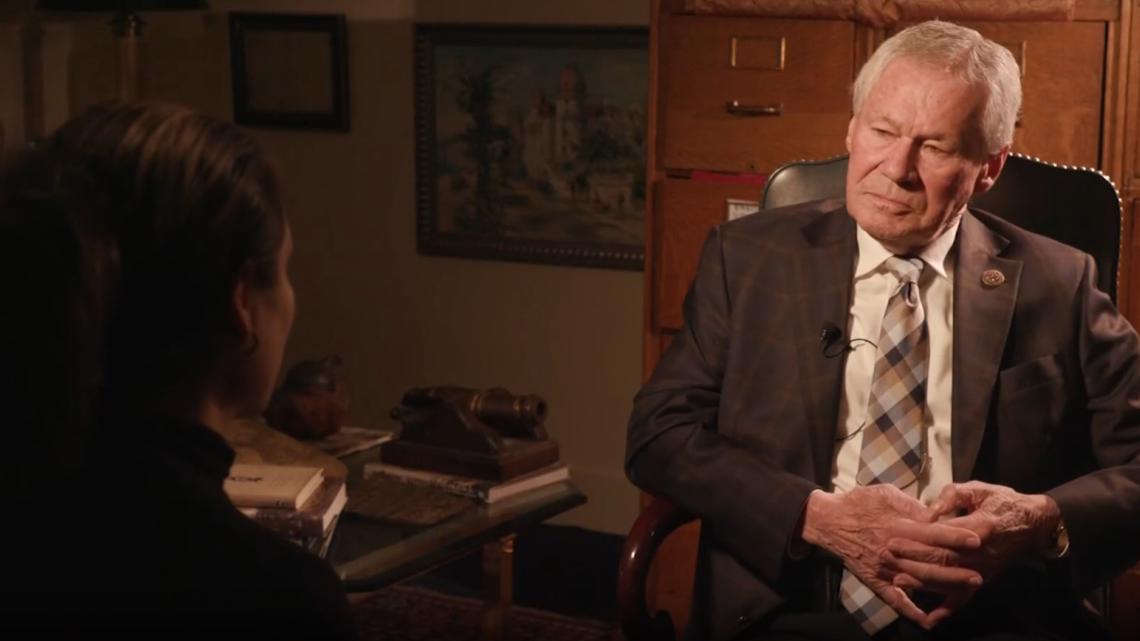
When asked if model legislation is inherently a good thing or a bad thing, Westerberg said, "Depends on your viewpoint. Years ago that's where we got land use planning from. Years ago that's where we got kindergartens from. So there's been model legislation that in many ways has served Idaho and its constituency well."
But, today, with politics so partisan and polarized, does model legislation serve Idahoans well?
"Some people have come to me with model legislation before. And sometimes that's a good thing. Sometimes it's a bad thing," Idaho State Rep. Brandon Mitchell (R- Moscow) told 7Investigates.
The answer: It depends who you ask. And it definitely depends on the legislation.
"If you've seen that it is working in other places, and it can benefit Idaho, we should bring ideas like that here," Idaho State Rep. Jordan Redman (R- Coeur d’ Alene) said.
But Scanlin doesn't see it that way.

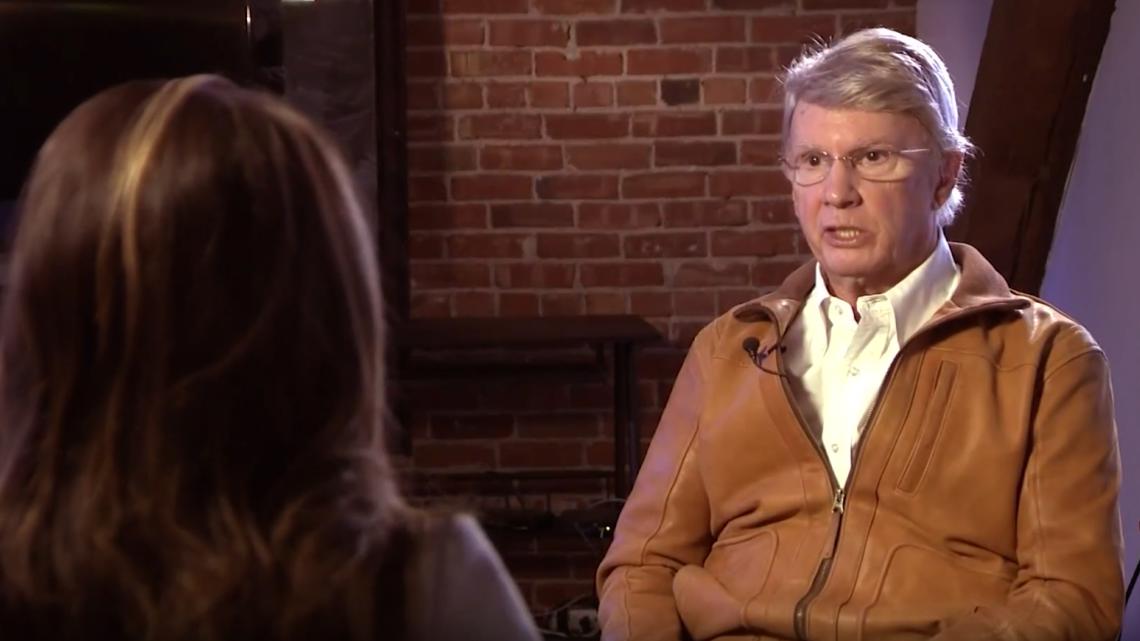
"They're dinkin' around, doing this bizarre stuff. And it's a lot of solutions in search of a problem that doesn't exist in Idaho," Scanlin said. "This isn't a problem. But there's model legislation out there for it and they're bringing it in here. And, unfortunately, a lot of it's passing."
Representatives Redman and Mitchell wouldn't call it "unfortunate" -- they have introduced or co-sponsored model bills, sometimes leaning on the legislative services office to tweak them. Sometimes, they aren't aware that the legislation they're jumping on is copied and pasted from an outside organization.
"The way I look at it is: if we get model legislation and it's already been through the court system, then we know it's already - it's constitutional, makes it easy. If we get model legislation from, say, Montana or something that just doesn't fit into Idaho, then it's probably not the best way to do it," Mitchell added.
The prevalence of model legislation is challenging to quantify -- while some bills may not be identical to other legislation or mirror its exact wording, the ideas themselves are copied.
In the 2024 session alone, 7Investigates found Idaho lawmakers pitched at least a dozen model bills. A handful went on to pass both houses and even become law.
Some examples include an amendment to state law allowing Safe Haven sites – where people can leave their babies - to use baby boxes and a bill barring cities and counties from regulating where you can bring knives.
Copy and paste legislation that drove contentious debate cropped up, too, including the Defend the Guard Act (SB 1252), which never got a hearing in the House Transportation & Defense Committee. And SB 1245 which shields pesticide manufacturers from certain liabilities, which was supported by Bayer, the manufacturer of the weed-killer Roundup.
Another type of pitched copycat legislation sits in a category of its own -- in the 2024 session this legislation centered around social issues like diversity, equity and inclusion (DEI), transgender care, ballot harvesting, pronouns and sex/gender definitions and books in libraries.
"I do think a lot of the bills we've taken up this year are social issues for sure," Rep. Redman added.
Take Republican State Sen. Brian Lenney's bill (SB 1357), for example, trying to get rid of DEI offices at Idaho higher education institutions.
While Lenney claimed it was "custom", 7Investigates discovered it was copied and pasted from the Manhattan Institute, a conservative New York think tank that rakes in $10-20 million from undisclosed donors each year.

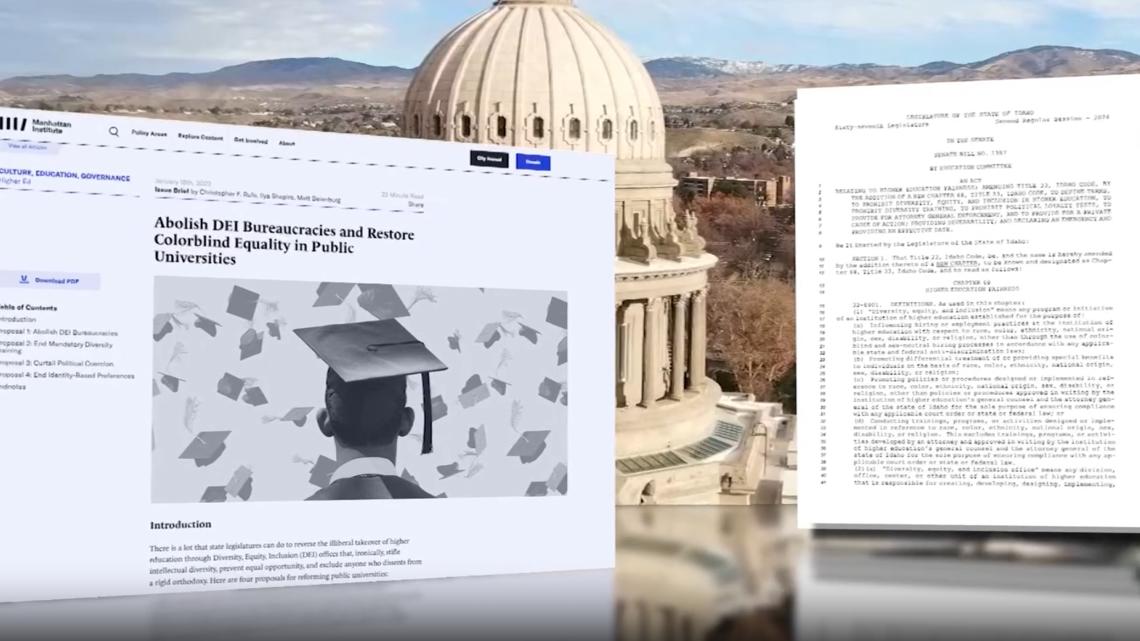
Republican Representatives Julianne Young and Bruce Skaug sponsored HB 421, which passed both houses and was delivered to Gov. Brad Little's office on Wednesday, despite strong opposition from the LGBTQ+ community and organizations like the ACLU of Idaho and Planned Parenthood.
If passed, this copycat legislation from the Heritage Foundation will change sex and gender definitions in Idaho code.
"I've had input both from the Heritage Foundation and [Alliance Defending Freedom]," Rep. Young told the House State Affairs Committee on Jan. 31.
The Heritage Foundation is a highly influential right-wing think tank backed by more than $100 million each year in "dark money" intended to influence public policy. Like most think tanks, the Heritage Foundation is a non-profit and doesn't have to disclose its donors.

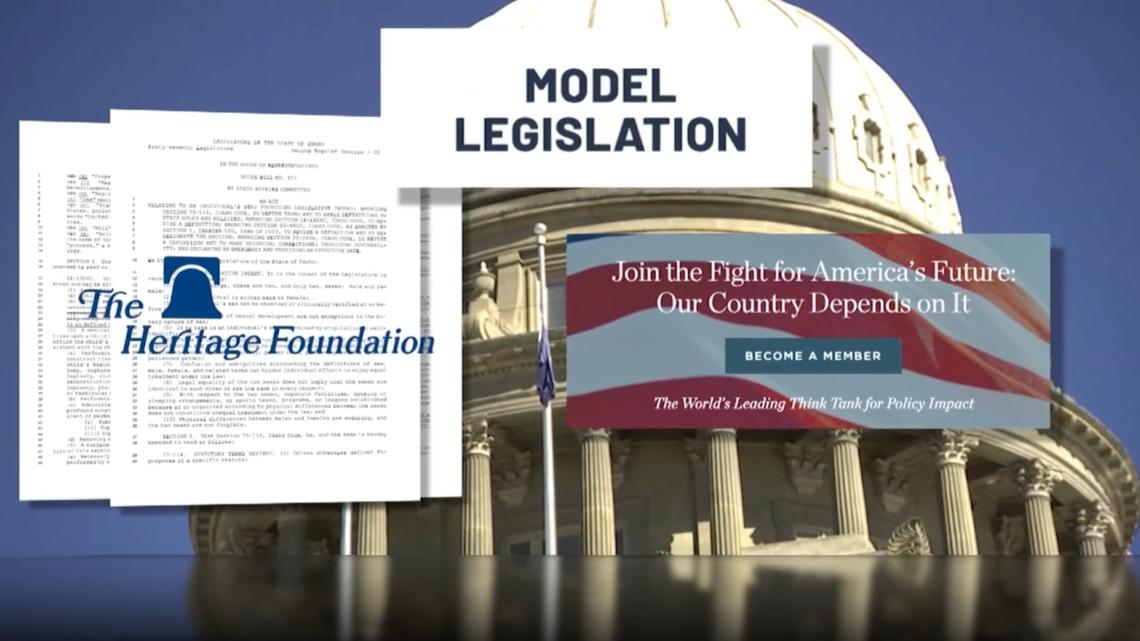
The Alliance Defending Freedom (ADF) is also a 501(c)(3) tax-exempt organization. According to its 2021 Form 990 filing, the Arizona-based organization "exists to advance the God-given right to live and speak the Truth."
Also from Young and Skaug - and also based off model legislation - is a new law banning the use of public money for transgender care. Lawmakers copied HB 668 from Do No Harm, an advocacy organization claiming to protect health care from identity politics.
"Some of the issues that we're taking on now is actually preemption issues, like getting in front of things. Because you do see what's happening in other parts of the country," Rep. Redman said, "so to get in front of it before it becomes an issue is probably also good policymaking."
Critics of some of these bill mills say invented issues detract from real ones and the "solutions" these groups peddle benefit them and their agenda, not Idahoans. Although, the same can be said about many model bills.
"There's real issues out there that I think get ignored because of the distraction of the more emotional issues," Westerberg told 7Investigates.
"We don't need this. It's not anything that we need to be addressing. But they make it sound like it's a big problem," Scanlin added. "It follows the money. And there's a lot of money in that. And so they have all these resources to go to, to come up with all this crazy, wacky legislation you'll see."
When asked if he feels it is important that lawmakers know exactly who is behind the bills pitched in the statehouse, Rep. Redman concurred that it is important. He also said it "would be wise" for constituents to have that knowledge.

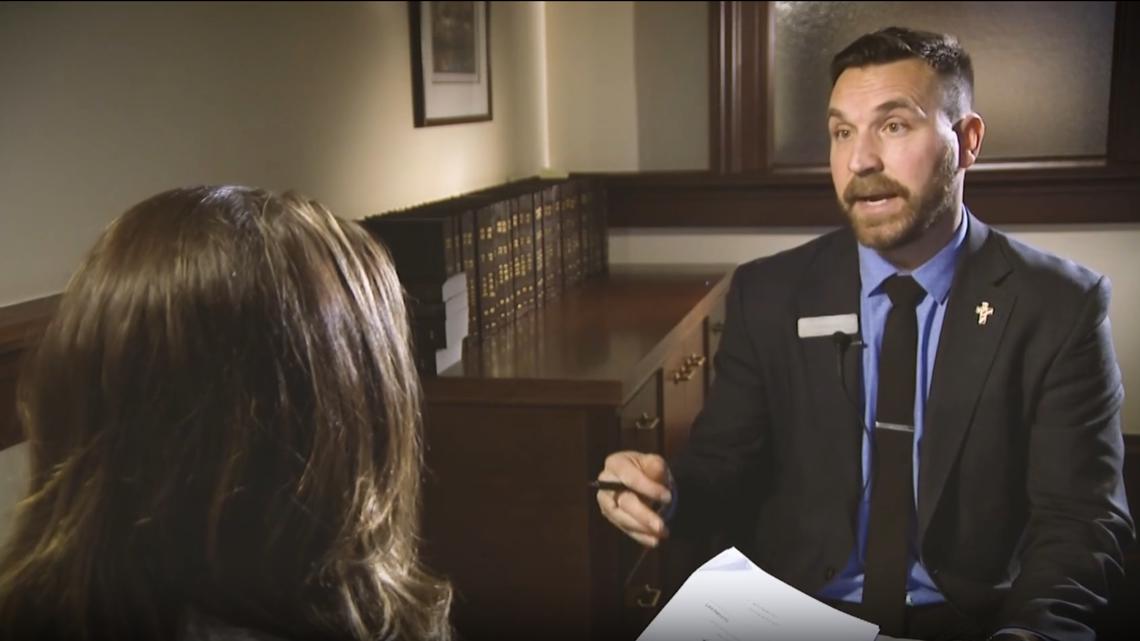
"That's something that can kind of get lost in the shuffle of things," Redman said. "I think if some of the lawmakers don't even know that, it'd be hard to get that information out. But I do think that would be really healthy."
Ultimately, he and Rep. Mitchell feel the contents and language of a bill are more important than where it comes from.
"As long as the bill does what it needs to do, I think that's the important part," Mitchell said.
This isn't unique to the Republican party in America -- progressive and liberal special interest groups pitch model legislation to Democrats as well. However, with our Republican-dominated legislature, it's not as common in Idaho.
KTVB’s award winning investigative team reports on local, crime, and breaking news across Idaho.
HERE ARE MORE WAYS TO GET NEWS FROM KTVB:
Download the KTVB News Mobile App
Apple iOS: Click here to download
Google Play: Click here to download
Watch news reports for FREE on YouTube: KTVB YouTube channel
Stream Live for FREE on ROKU: Add the channel from the ROKU store or by searching 'KTVB'.
Stream Live for FREE on FIRE TV: Search ‘KTVB’ and click ‘Get’ to download.

